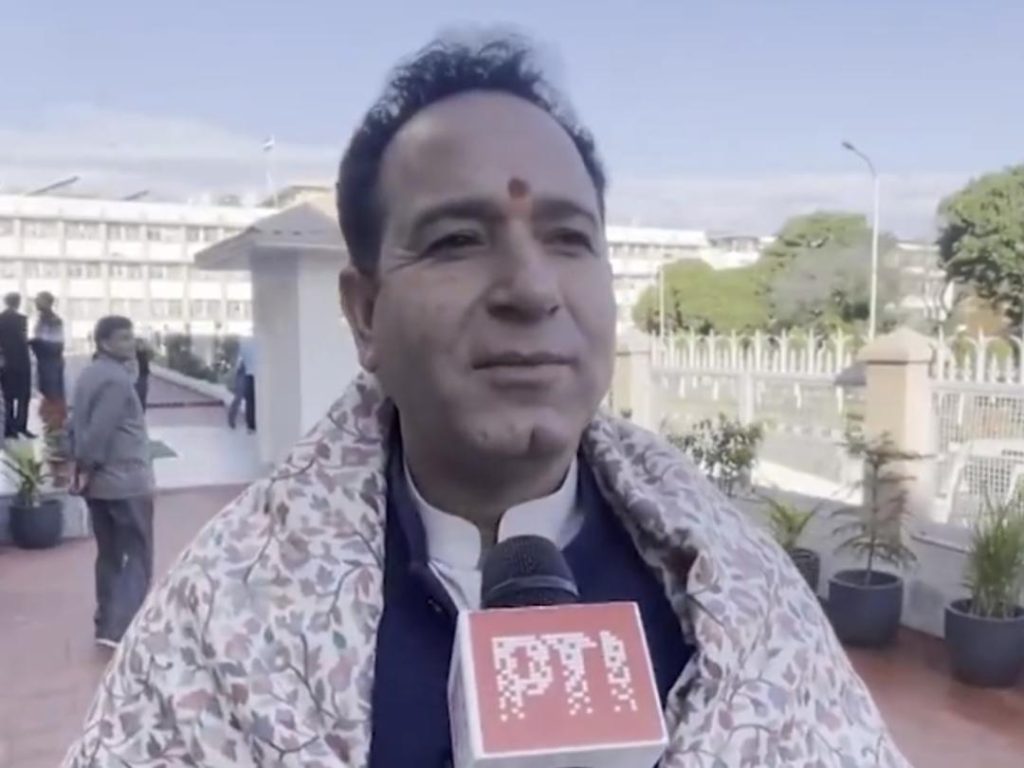
Title: Irrelevant to Discuss Article 370 in J&K Assembly Session: BJP
The recent Jammu and Kashmir Assembly session was marked by a heated discussion on various issues, but one topic that seems to have been put on the backburner is Article 370. BJP MLA and Leader of Opposition (LoP) in the J&K Assembly, Sunil Sharma, has expressed his opinion that it is “irrelevant” to discuss Article 370 in the Assembly, stating that it would be a waste of time.
Article 370, which granted special status to Jammu and Kashmir, was repealed by the Indian government in August 2019, sparking widespread protests and unrest in the region. The move was seen as a significant shift in the political landscape of the state, and its implications are still being felt today.
In a recent interview, Sunil Sharma expressed his views on the matter, stating that the discussion on Article 370 would be a “waste of time” in the Assembly. “It’s irrelevant now,” he said. “If we will have the discussion on Article 370 (in the Assembly), it would be a waste of time.”
Sharma’s comments come at a time when the J&K Assembly is gearing up for a new session. The session, which is expected to begin shortly, is expected to see a flurry of activity, with various issues on the agenda. However, it appears that Article 370 may not be one of them.
Sharma’s stance on Article 370 is not surprising, given the BJP’s long-standing stance on the issue. The party has consistently maintained that Article 370 is an obstacle to the development of the state and needs to be repealed. The party has also been critical of the previous government’s handling of the issue, accusing them of using it as a tool to divide the state along communal lines.
However, not everyone agrees with Sharma’s assessment. Many have argued that the repeal of Article 370 has had far-reaching consequences for the state, including the erosion of its special status and the imposition of the central government’s direct rule. Others have expressed concerns about the impact of the move on the state’s economy and the livelihoods of its people.
The J&K LG, Manoj Sinha, recently addressed the Assembly, but his speech did not reflect the promises made by the state’s present government, according to Sharma. “The LG’s address did not reflect the promises made by the present government,” Sharma said. “The government had promised to resolve the issues of the people, but the LG’s address did not mention anything specific.”
Sharma’s comments have sparked a heated debate, with many questioning the relevance of Article 370 in the current political scenario. Some have argued that the issue is no longer relevant, given the repeal of Article 370 and the central government’s direct rule over the state. Others have expressed concerns about the impact of the move on the state’s autonomy and the rights of its people.
The debate on Article 370 is not new. The issue has been a contentious one for years, with different political parties and groups having different views on the matter. The BJP has consistently maintained that Article 370 is an obstacle to the development of the state and needs to be repealed. The party has also been critical of the previous government’s handling of the issue, accusing them of using it as a tool to divide the state along communal lines.
On the other hand, the National Conference (NC) and the Peoples Democratic Party (PDP) have been vocal in their opposition to the repeal of Article 370. They have argued that the move has had far-reaching consequences for the state, including the erosion of its special status and the imposition of the central government’s direct rule.
The J&K Assembly has been a key platform for the discussion of various issues, including Article 370. The Assembly has been the site of many heated debates and protests over the years, with members from different political parties and groups having different views on the matter.
In conclusion, the debate on Article 370 is not likely to go away anytime soon. While some, like Sunil Sharma, may argue that it is “irrelevant” to discuss the issue in the Assembly, others may see it as an important topic that needs to be addressed. The issue is complex and contentious, and any discussion of it is likely to be heated and passionate.
Regardless of the outcome, the discussion on Article 370 is likely to continue to play a significant role in the political landscape of Jammu and Kashmir. The issue has the potential to unite or divide the people of the state, and its implications are likely to be felt for years to come.






